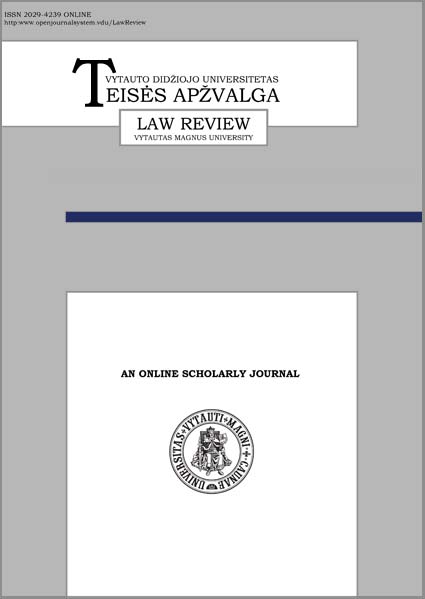Prekės ženklo apsauga, vykdant vaistinių preparatų lygiagretų importą
Trade mark protection for imports of parallels of medicinal products
Author(s): Jurgita Grigienė, Justina JacunskaitėSubject(s): International relations/trade, Health and medicine and law, EU-Legislation
Published by: Vytauto Didžiojo Universitetas
Keywords: Pharmaceutical products; parallel import; trade mark; repacking;
Summary/Abstract: In order to achieve the free movement of goods, a parallel importer has the right to acquire medicinal products in one member state, to repackage them and to sell them in another member state. However, parallel imports of medicinal products can only take place if the five conditions of the BMS established by the CJEU are met. In particular, the parallel importer has the right to repackage the product if he is not otherwise able to enter the market, to indicate who repackaged the product, who is the parallel importer, who is the manufacturer, to not compromise the quality of the product, to not harm the reputation of the trade mark and to inform the trade mark owner. The CJEU's interpretations set out the legal criteria that national courts must take into account when resolving disputes between parallel importers and trade mark proprietors. As the facts are established and interpreted by the national courts of the Member States, a situation may arise where the national courts of different Member States give different rulings on the same legal issue. This situation is well illustrated by the different rulings of the Danish and Swedish courts on the obligation for a parallel importer of pharmaceutical products to indicate on the outer carton of a pharmaceutical product to whom the trade mark belongs. The article reveals the recent discussion on the right of a parallel importer to rename a generic medicine as branded one. A parallel importer has the right to prepackage medicinal products if he is unable to place on the market a package of medicinal products in the same size as in a foreign country. The sensitive issue of the parallel importer's right to repackage a product in compliance with the provisions of the Falsified Medicines Directive is also addressed in this article. The Falsified Medicines Directive requires all pharmaceutical products to be packaged with a protective tamper device, i.e., once opened, the box cannot be resealed, as one-time protection is compromised, and parallel importers must open a package that can no longer be re-used, and the pharmaceutical product must be repackaged in order to label the inner packaging and insert the package leaflet in the national language. The parallel importer must send a notification only to the trade mark owner and not to the registrant of the medicinal product about the intended repackaging of the product. And in order to ensure the protection of his rights, the trade mark owner must respond to the notice of intention to import a medicinal product in parallel within a reasonable time (usually 15 working days) and communicate with the parallel importer in accordance with the principles of fairness and reasonableness. The parallel importation of medicinal products must not only ensure a balance between the free movement of goods and the protection of the rights of the trade mark proprietor, but also consider patient safety and the protection of public health. The practical insights revealed in the article will be helpful for pharmacists, parallel importers, intellectual property lawyers, courts and other legal practitioners.
Journal: Teisės apžvalga
- Issue Year: 2021
- Issue No: 2 (24)
- Page Range: 34-58
- Page Count: 25
- Language: Lithuanian

